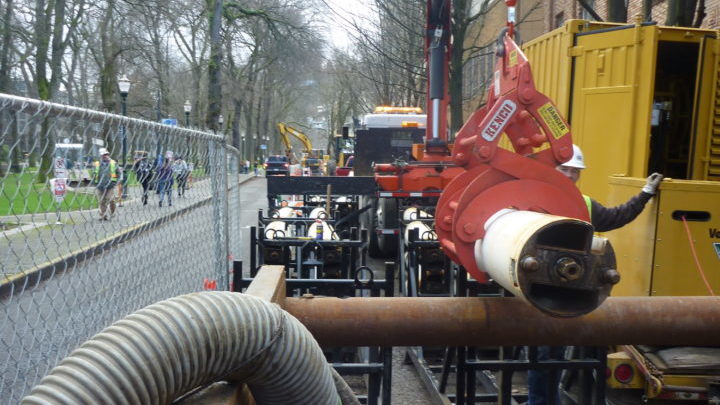Before you begin any microtunnelling job, there are several critical factors to consider, according to microtunnelling expert and Vermeer AXIS inventor Stuart Harrison.
Understanding the prevailing ground conditions is paramount in getting successful outcomes from microtunnelling. Your findings in regard to the prevailing ground conditions will then also go a long way to determining the type of pipe to be installed, and the length of the line. The equipment to be utilised will also be somewhat determined by the geotechnical information provided. Because the ground conditions are such a critical aspect of any microtunnelling job, before appointing a microtunnelling contractor, companies should always look into the contractor to try and ascertain the likelihood of success – you wouldn’t want an inexperienced crew in difficult ground conditions.
The precision of the accuracy of an installation is a critical factor in any installation, and this comes down to a number of important factors:
- The guidance system – you must have an accurate guidance system in order to get an accurate installation (such as laser or total station)
- The ability of the drill head to steer – if drill heads can’t cut across, they will need to progress to effect a steer, creating a snaking effect in the ground
- Selection of the cutting face – this needs to match the ground conditions in order to steer effectively
- Quality checking of equipment – ensuring the equipment is of good repair prior to any launch
- The ability of the operator – typically a lack of understanding of ground conditions and cutting faces, slow reaction times and poor interpretation of way the head is steering (or not steering) in the ground will have a dramatic impact on the overall accuracy of any installation.
In addition, before appointing any contractor for a microtunnelling job, companies should consider:
- The contractor’s track record in the presumed ground conditions
- The equipment and method they will utilise
- The contractor’s contingency plans if things don’t go as expected
- Their depth of knowledge within the field.

